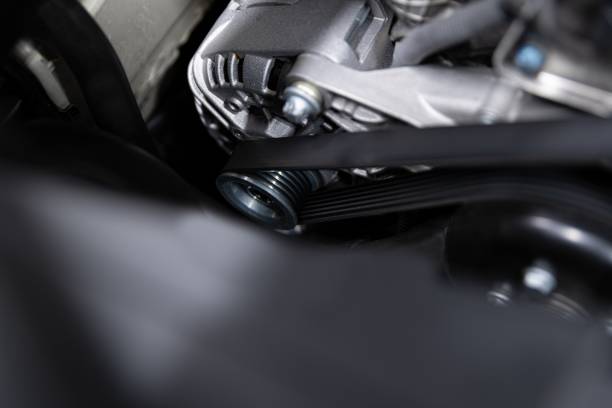March 25, 2024
What can overload an alternator?
Several factors can overload an alternator:
- High Electrical Demand: If the electrical system demands more power than the alternator can produce, it can overload. This can happen when multiple high-power accessories are used simultaneously, such as air conditioning, headlights, heated seats, and audio systems.
- Faulty Electrical Components: A short circuit or malfunctioning electrical component can cause excessive current draw, overloading the alternator. For example, a faulty voltage regulator can allow the alternator to produce too much power, leading to overload.
- Battery Issues: A weak or defective battery can cause the alternator to work harder to maintain proper voltage levels, leading to overload. Similarly, if the battery is disconnected while the engine is running, the alternator may overload due to the sudden loss of load.
- Belt Slippage or Tension: If the alternator belt is loose or slipping, it may not rotate the alternator pulley effectively, reducing its output capacity and potentially causing overload.
- High Engine Load: In vehicles with high-performance engines or when towing heavy loads, the engine may require more power, placing additional strain on the alternator and potentially causing overload.
- Faulty Alternator: Sometimes, the alternator itself may be faulty, either due to internal component failure or wear and tear, leading to overload.
- Excessive Heat: Overheating of the alternator, typically caused by inadequate cooling or operating under extreme conditions, can reduce its efficiency and lead to overload.
To prevent alternator overload, it’s essential to properly maintain the vehicle’s electrical system, ensure all components are in good condition, and avoid placing excessive demands on the system. Regular inspections and servicing by a qualified mechanic can help identify and address any potential issues before they lead to alternator overload.
What are the signs of a bad alternator?
Several signs indicate a failing alternator:
- Dimming Lights: Dimming headlights or interior lights while driving can indicate a problem with the alternator. This occurs because the alternator is not producing enough power to meet the electrical demands of the vehicle.
- Warning Light: The battery or charging system warning light on the dashboard may illuminate, indicating a problem with the charging system, including the alternator.
- Dead Battery: If the battery repeatedly goes dead, it could be a sign of a failing alternator. The alternator should recharge the battery while the engine is running, so if the battery consistently loses charge, the alternator may be at fault.
- Electrical Issues: Various electrical issues, such as flickering lights, malfunctioning power windows or locks, or erratic operation of dashboard gauges, can indicate alternator problems.
- Strange Noises: A failing alternator may produce unusual noises such as grinding, whining, or squealing. These noises can be caused by worn-out bearings, a loose belt, or other internal issues.
- Burning Smell: A burning smell, often described as a hot metal or electrical odor, may indicate overheating of the alternator due to internal problems.
- Difficulty Starting: If the alternator is not charging the battery properly, it can lead to difficulty starting the engine, especially in cold weather or after the vehicle has been parked for a while.
- Stalling or Misfiring: A failing alternator can cause the engine to stall or misfire due to inadequate power supply to the ignition system or fuel injectors.
If you notice any of these signs, it’s essential to have your vehicle inspected by a qualified mechanic to diagnose the problem accurately and address it before it leads to further issues or a breakdown.

